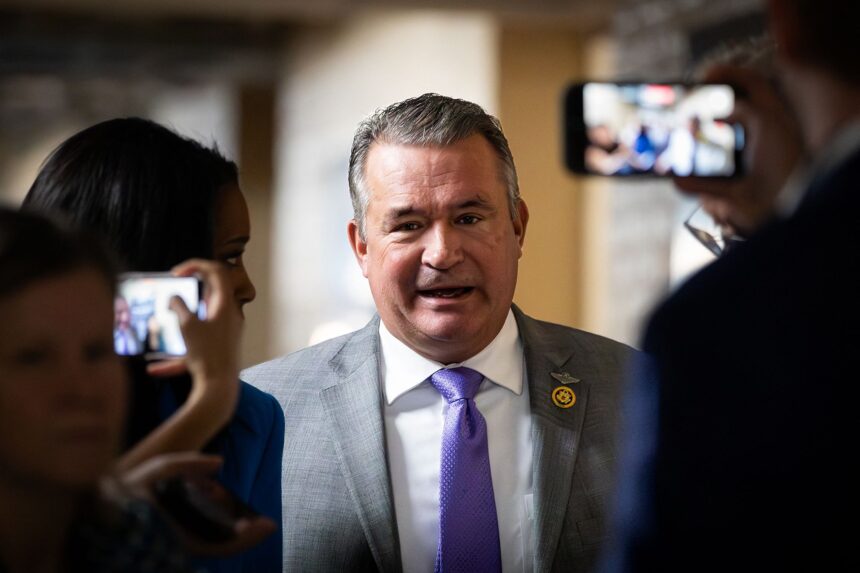Rep. Don Bacon’s Decision Not to Seek Reelection: A Critical Shift in Nebraska Politics
By Jeff Zeleny and Sarah Ferris, CNN
In a significant political development, GOP Rep. Don Bacon, who has represented one of the House Republicans’ toughest battleground districts, has chosen not to run for reelection in 2026. This announcement, expected to be formalized next week, opens up a critical seat in Nebraska that could play a pivotal role in the upcoming midterm elections.
Bacon’s departure is anticipated to have considerable implications for the GOP, which is already navigating a narrow majority in the House. With Republicans needing to maintain every seat they currently hold, losing a centrist figure like Bacon could further complicate their efforts to retain control. Given the competitive nature of his district, this vacancy presents an enticing opportunity for Democrats aiming to regain dominance in the House.
Insights into Bacon’s Decision
Sources close to Bacon indicate that this decision does not come as a surprise to many in the Republican Party. The retired Air Force officer has been vocal about his frustrations with Washington. His voting record has suggested a growing discontent, raising speculation among his colleagues about his intentions. This introspection aligns with broader patterns seen as politicians approach pivotal moments in their careers, especially those from battleground districts.
Bacon, who first won his seat in 2016, had an impressive showing in the last election. His victory was one of the most surprising Republican wins across the nation, especially as he managed to outperform Donald Trump and navigate significant GOP challenges in the Omaha-area district. This track record underscores both his appeal and the unique electoral landscape of Nebraska’s 2nd Congressional District.
A Voice of Dissent
Known for his independent stance, Bacon has not shied away from challenging Trump on various issues, especially in the realm of foreign policy. His willingness to address controversial subjects has earned him respect from some colleagues, positioning him as a moderate voice in a party increasingly polarized. This could further fuel speculation about his future political ambitions, with some suggesting he might eye a presidential run in 2028.
The absence of a figure like Bacon raises questions about who could fill the void in the upcoming election and how that will impact party dynamics. Will the GOP be able to rally behind a candidate who resonates with the broad spectrum of constituents, or will they risk fragmenting the political base?
Democrat Hopes for Retaking the Majority
The Democratic Party is viewing Bacon’s exit as an encouraging sign as they strategize for the 2026 midterms. Historically, new presidential administrations see significant losses in their first midterm elections, a trend that could bolster the Democrats’ chances. By flipping just a few seats, Democrats could retake control of the House, making this Nebraska seat even more pivotal.
Party officials are optimistic, noting the meaningful historical trends that could favor a Democratic resurgence. The perception that a “blue wave” might be on the horizon is palpable among Democrats, who are already gearing up for an aggressive campaign to capitalize on this opportunity.
Republican Sentiments and Strategic Considerations
While some Democrats are buoyed by Bacon’s exit, there are whispers of concern among Republicans about the potential for a blue wave. However, party members are also quick to highlight factors that could play to their advantage. The redistricting battles in states like Ohio and the potential impact of Trump’s personal involvement are seen as crucial to energizing bases that previously sat out midterm elections. With Trump expected to play a significant role in fundraising and voter turnout strategies, Republican leaders express cautious optimism about their prospects in 2026.
The upcoming elections promise to be a fascinating study in contrasts, with both parties focusing on strategies that leverage their respective strengths. As the political landscape shifts, the focus will remain on how candidates evolve in response to these changes, ultimately determining the direction of Nebraska’s electoral future and the broader national landscape.
CNN’s Manu Raju contributed to this report.


